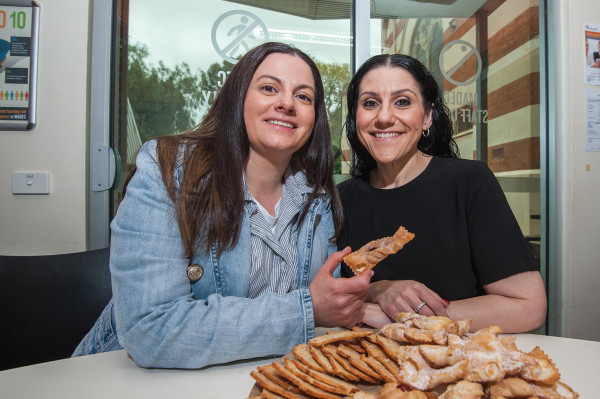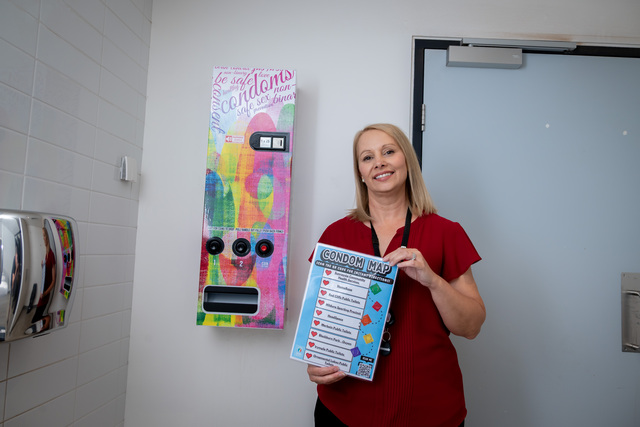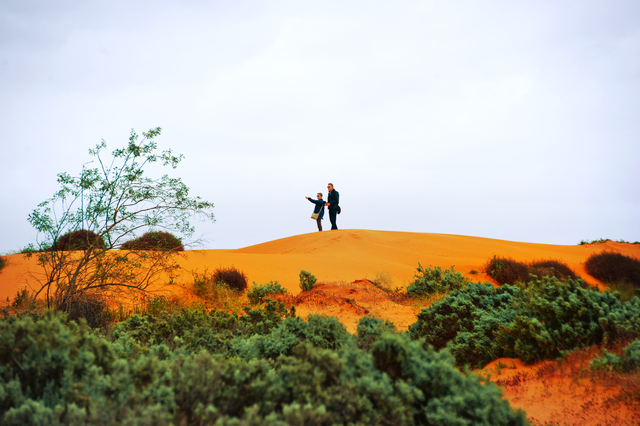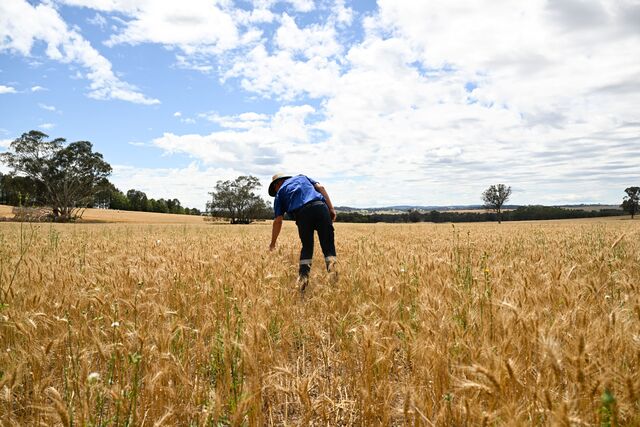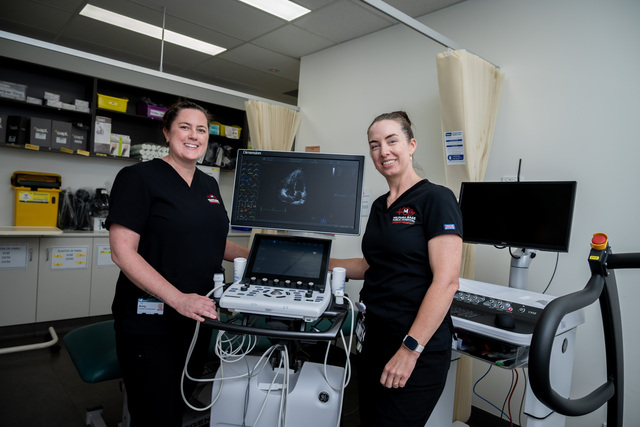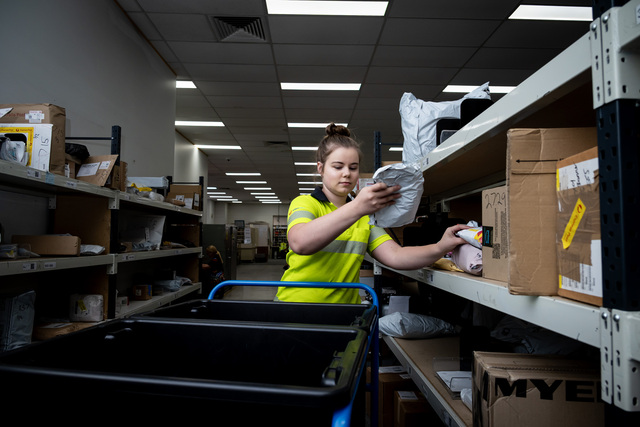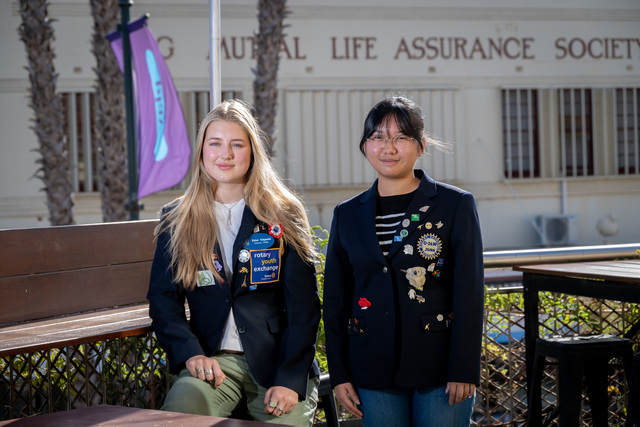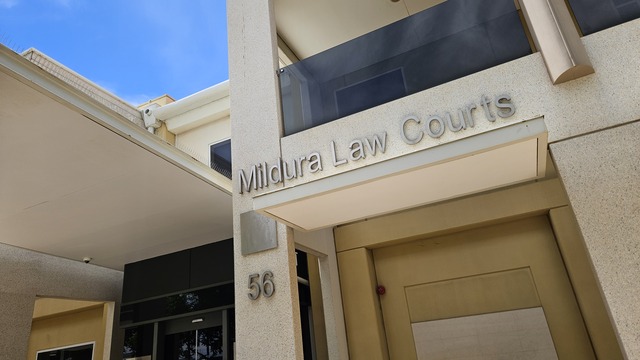Of all the days in the United Nations calendar, World Food Day on October 16 is one of the most celebrated. On this day, more than 150 countries work collectively to promote worldwide action and awareness for those suffering hunger. This year’s theme is focused on healthy diets for a zero hunger world with a focus on nourishment through healthy diets that care for the environment. With this in mind,
Danielle Wilcock sat down with members of the Sunraysia community to talk about their cultural foods.
Renai Caristo and Carla Robinson
COUSINS Renai Caristo and Carla Robinson are full of Italian heritage.
Their grandparents, Francesco Vincenzo and Stella Italia, came to Australia from Calabria, Italy, in 1954 and got married a year later.
Renai’s father Giuliano and Carla’s father Victor are brothers and are two of nine siblings. Their family is not only extended but well established.
Renai and Carla were born in Mildura and have lived in the region all their lives.
They grew up on neighbouring family blocks and throughout their lives, their families maintained very close relationships.
Both speak with great passion when describing their Italian culture and foods. They revealed proudly the foods that are innately Italian and the significance of their elders’ food education and how this has impacted upon their approach towards foods sustainability.
“I would describe our family’s style of cooking as Calabrese,” Renai explains.
“This style of cooking is not delicate or necessarily fancy but it has lots of strong flavours and tastes delicious.”
Carla adds, “Our food is always fresh and seasonal but Calabrian food is rich and robust.”
“It’s very simple but packed with flavour. It’s very authentic and rustic.”
When asking the ladies what makes their food intrinsically Italian, but more specifically Calabrese, they talk openly and again with great pride.
“Calabrian food is always made for sharing, there’s always lots cheese, beans, bread and pasta,” Carla states.
“We use a lot of fresh herbs like basil and oregano but also lots of garlic and chillies. We love our olive oil and salt.”
Food traditions are undeniably a huge part of Italian culture. Both Renai and Carla explain the most symbolic of traditions, one of which is Easter.
“At Easter we make Italian Easter bread called Enguti. It’s a soft, sweet bread that we arrange to look like a plait,” Carla says.
“At Christmas we always make zippolis, which is probably best described as a savoury anchovy stuffed doughnut.
“They can also be rolled in sugar and then fried which makes a really nice sweet desert.”
Like many Italian families, Carla and Renai’s entire family get together in June and make their own salami.
“Tomatoes are a staple in every Calabrese household, as well as bread,” Carla explains.
Renai adds, “Our pane (bread) is cooked at home in a bread oven, which we call a forno, and always at the end of January we make traditional tomato sauce.”
Both are very passionate about their Calabrian cuisine and the memories that their food traditions have afforded.
“Food is love and it’s used as a way to remember our grandparents,” Carla says.
“Growing up, I always remember dinners being the typical pasta dishes like lasagna, also pizzas, ozzo bucco and risottos.
“Desserts were typically ameretti biscuits, panettone, tiramisu, cannoli and crostolis.”
Both Renai and Carla share some lovely memories of their Nanna and the influence she had on their attitudes towards food.
Renai explains how her passing has enhanced her desire to get in the kitchen.
“Personally speaking, since losing Nanna, I have wanted to cook more with my mum and my sisters,” she says.
“I feel as though we should cook more the recipes that she has passed down so we can remember and honour her.”
In line with this year’s World Food Day theme of food sustainability, Carla discusses how her grandparents were always very self-sufficient and how food waste was simply not an option.
“Coming from post war depression, salvaging and reusing became a constant practice,” she says.
“I remember being told by our grandparents how they would forage for wild asparagus and thistle, as well as prickly pears and fennel to cook.
“They would make very simple, amazing meals. To ensure families were fed, fruits and vegetables were grown seasonally and preserved for winter.
Packaging was always reused and this is very much a part of our family values today.”
Hayriye Cevik
HAYRIYE Cevik, or H as she is known to her friends, is of Turkish origin. Her parents came to Australia from Turkey in the 1970s.
At the age of five, Hayriye’s family came to Mildura for a holiday and decided to settle here.
“With cooking our traditional Turkish food, I’ve learnt a lot from my mum. She’s taught me the traditional dishes and techniques,” she says.
“We use a lot of spices when we cook. Turkish food is very different depending on where you are in Turkey, some parts cook differently and present their food differently.”
When discussing traditional Turkish dishes, Hayriye identifies some that are typically made when entertaining or for family gatherings.
“Dolma’s are very popular, they’re stuffed vine leaves with rice, onions, garlic parsley and tomatoes,” she says.
“A traditional dish would be a ravioli style dish called manti. It’s usually made as an entree and is like a dumpling soup, the pasta is filled with mince meat, garlic and parsley. Some parts of turkey will put chickpeas in there with lamb shank.
“A traditional main dish would be guvec, which has eggplants and chunks of meat in a tomato based chilli and garlic sauces.
“These are often served in a clay pot and in some parts of Turkey these are served in the clay jug and it requires breaking before eating.
“It’s cooked over charcoal for five to six hours and once it’s broken it’s served on the table to share.”
Desserts include the typical baklava and kataif, which are always served with tea.
Stereotypically, one would presume Turkish coffee is served with sweet treats but Hayriye explains this isn’t the case.
“Turkish coffee is popular but tea is more a social drink than coffee,” she says.
“Typically if you visit friends or family, tea is usually offered not coffee, here in Australia coffee is very popular. It’s usually a brewed tea using the leaves and other flavourings and we have this with sweets and traditional biscuits.”
Hayriye discussed the laws surrounding food, explaining how they do not eat pork nor drink alcohol.
“At Easter we fast and afterwards we eat more sweet foods than savoury,” she recalls.
When it comes to cooking, Hayriye says she learnt everything from her mother.
“I try to use different foods but always cook traditional meals,” she says.
“My mum doesn’t have specific methods, she cooks instinctively and only uses what she has.
“There’s never any food waste and her meals are always simple but delicious.”
Visiting Turkey and seeing the ways her grandparents lived helped Hayriye understand her parents ways and attitudes towards their traditional food.
“They all fend for themselves, they grow their own vegetables and have their own animals,” she says.
“They dry all their own herbs and spices and preserve all their own sauces.
“The way they live cares far more for the environment. They are very self sustaining.
“Mum has always grown her own vegetables and fruits. Growing up we were always aware of where food comes from and how to make it ourselves.”
Hayriye says times have changed, with children now not exposed to the life of past generations, and foods are too convenient.
It can be said that regardless of culture or ethnicity, these community members all agreed upon one thing, that food should be enjoyed but not at detriment to our environment.
As the UN’s message for World Food Day so clearly states; we must work towards zero world hunger but in doing so we must act sustainably and care for our environment.
We can do this by practicing the food ethics and traditions of past generations, who were undoubtedly far more self-sufficient and cared much more for the world with which we live.

